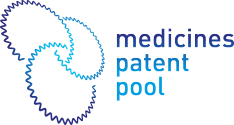WHA Resolutions on Access to Medicines and Innovative Financing
26 May 2014
The Medicines Patent Pool (MPP) lauds the resolutions passed over the weekend at the 67th World Health Assembly on access to essential medicines and on innovative financing and coordination of R&D for diseases that disproportionately affect poor populations. The implementation of both resolutions should contribute to improving health outcomes for millions of people living in developing countries.
MPP particularly welcomes the call for increased attention toward improving the availability, affordability, quality and rational use of essential medicines. In particular, WHO Member States have emphasized the increasing importance of promoting and developing medicines for children, a key focus of MPP’s work. In the field of HIV, there is a significant gap between the number of adults currently taking antiretrovirals (ARVs) and the number of children with access to the essential treatment necessary to live long and healthy lives. Only 647,000 children living with HIV are currently on antiretroviral treatment, a quarter of those in need.[1] The dearth of appropriate HIV paediatric formulations, in once-a-day, palatable fixed-dose combinations, contributes to this public health challenge.
MPP, together with UNITAID and the Drugs for Neglected Diseases initiative (DNDi), recently launched the Paediatric HIV Treatment Initiative (PHTI) and is a key player in ensuring future development of appropriate innovative treatments for children living with HIV. This initiative recognises the importance of “identify[ing] key barriers to access to essential medicines and to developing strategies to address these barriers,” an important clause in the access to medicines resolution. MPP, through the work of the PHTI, will continue to broker licensing agreements with patent holders to facilitate low-cost generic manufacturing of WHO recommended ARVs for children as well as for new formulations in originator company pipelines.
Private sector partners Bristol-Myers Squibb, Gilead Sciences and ViiV Healthcare have signed agreements with the MPP on HIV medicines for paediatric care, while AbbVie and Merck/MSD are currently in negotiations with the MPP to accelerate access to appropriate and affordable HIV paediatric formulations. Only by working with a range of partners from industry, to communities living with HIV and governments, can we hope to fully promote the development and availability of essential HIV medicines for children. We welcome the WHO Member States support for initiatives to improve treatment options for the more than three million children living with the virus today.
[1] UNAIDS 2013 Global Report







